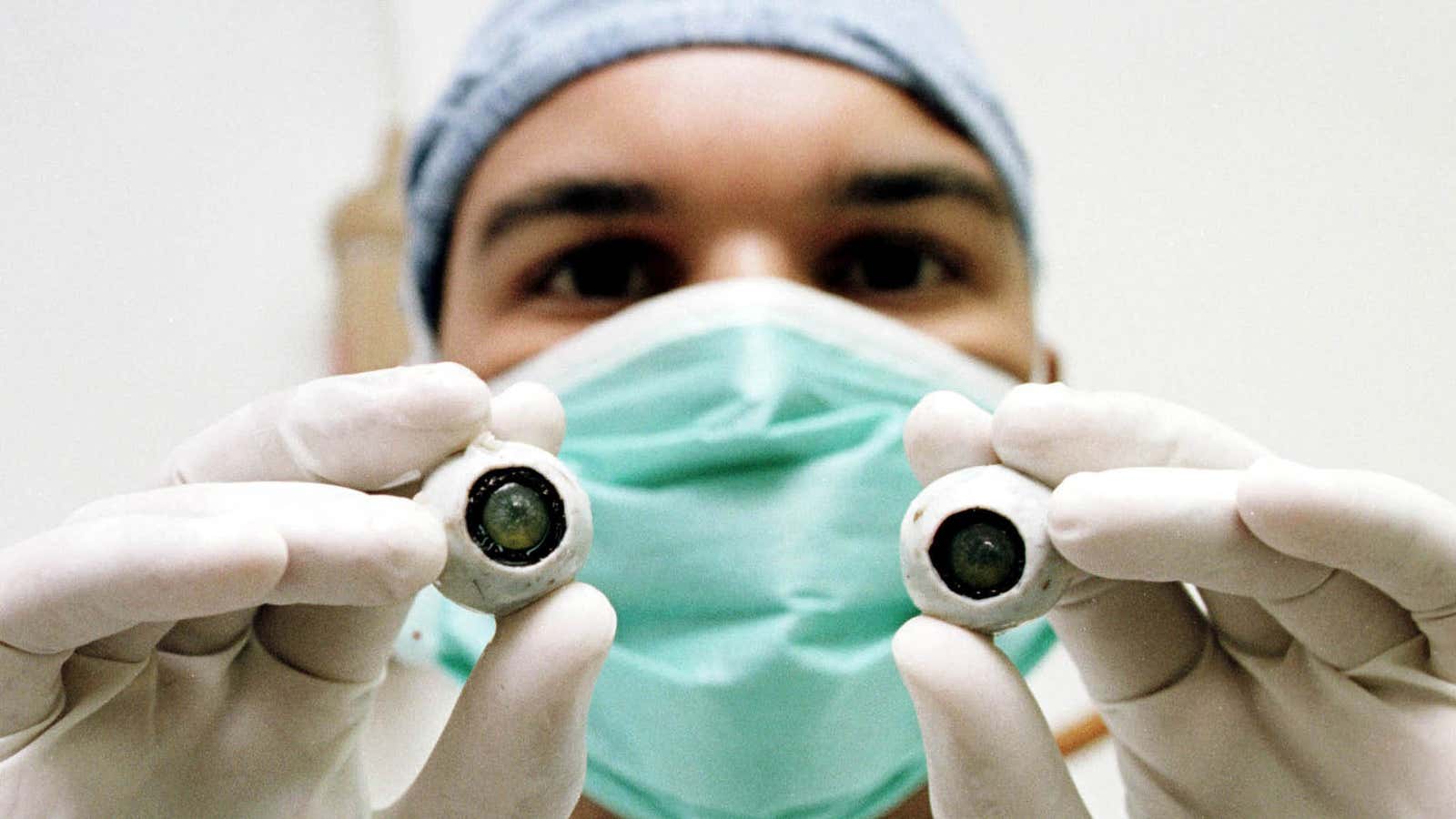Few people die under circumstances that allow their organs to be successfully donated. In the UK, the number of such deaths has fallen by 3% in 2014 compared to a year ago. That means, for the first time in a decade, the number of people who could donate their organs has fallen, too.
For someone to become a potential organ donor, the person has to be declared brain dead (or assumed to have no other way to recover) while their body is kept on a ventilator. In such a situation, after consent from their loved ones, their organs can be available for transplant.
According to the UK’s National Health Service (NHS) blood and transplant unit, it is not clear why there have been fewer of these deaths in the UK. To be sure, there have been improvements in dealing with traumatic head injuries, which should have helped reduce such deaths. But such improvements cannot explain why there was a fall just this year.
Regardless, there is still a large gap between people who die under those rare circumstances and those who donate their organs. Among the 30,000 people who died in Wales in 2011, for instance, 250 were under conditions that allowed for donating their organs. However, only 67 became organ donors.
The likely reason for that, according to the NHS, is that “in 43% of cases where organ donation is possible, families say no to donation because they don’t know whether their loved one wanted to be a donor.”
The total number of people waiting for an organ transplants has been falling for the last few years. But there is still a large gap between those on the waiting list and those receiving an organ transplant.
Wales has decided that flipping the system of organ donation could help reduce the gap. Starting Dec. 1, a person will be assumed to have consented to organ donation unless they’d already opted out. This should make family consent easier. If it does, then similar policies in England, Scotland, and Northern Ireland may soon follow.
